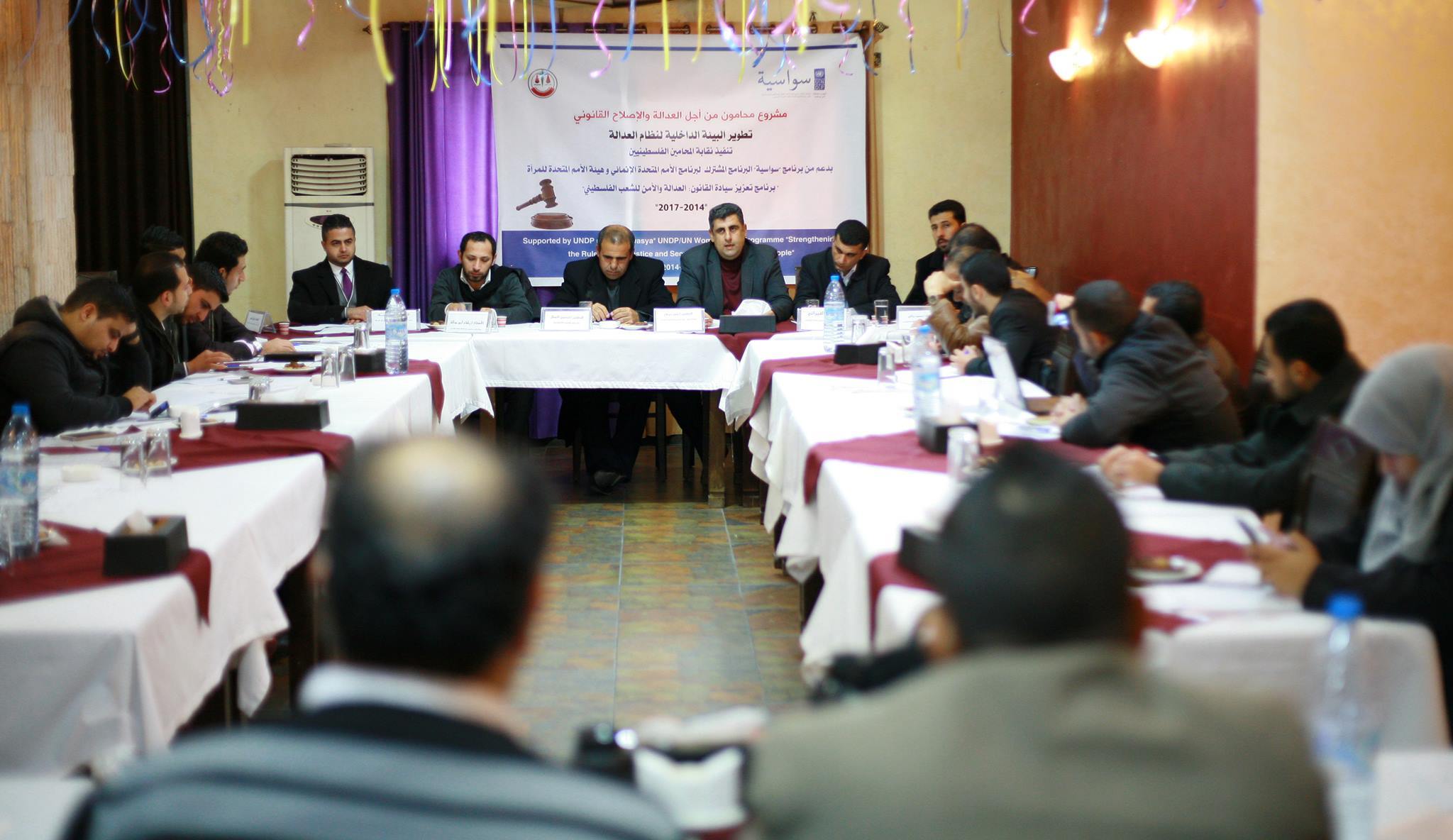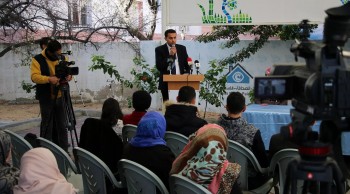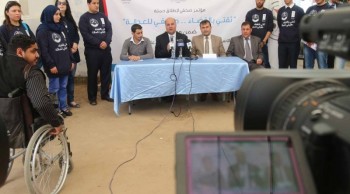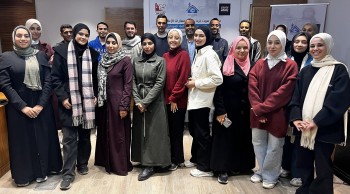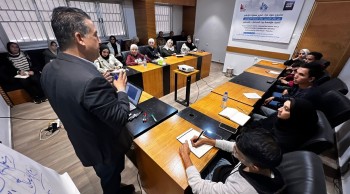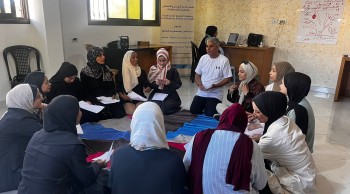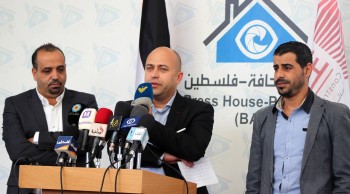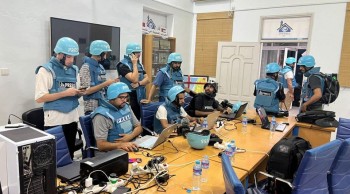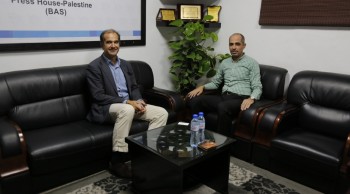Gaza, 28/12/2016--- Press House- Palestine has participated in a workshop entitled " The role of Judiciary in Monitoring Justice Sector" within " Lawyers for Justice and Legal Reform" Project implemented by Lawyers Syndicate, and funded by SWASYA Program.
Legal and Media specialists unanimously agreed that cooperation between the Fourth Authority and Judiciary organization is so important. Rashad Abu Mdallah, the coordinator of " Lawyers For Justice Project", presented the project and the services and advisory services that the project provides the organizations of the Palestinian community with.
He noted that the project is considered one of the most important legal projects in Gaza, since it supports the workers of Justice Sector and presents many services to them.
Abu Mdallah explained that the project is supported by the Lawyers Syndicate with the fund of SAWASYA Program, where it present its services through legal clinics and lawyers in the Court to present the legal services for everyone in need. .
He explained that the project conducts legal workshops and different educational courses as well as programs that aim at enhancing the capabilities of lawyers via the Lawyers Syndicate.
In his turn, Monther Al-Ferany, the Legal Advisor of Press House presented the legal materials in regard to media work, asserting that the problematic gap doesn’t' lie in the publication and printing law. Rather, it's beyond following it since some Ministries " Interior, Media" adaptlaws for their interests.
He noted some different warnings that face journalists and the excuses that they must get.
Al-Ferany said; "not all information are available for journalists, since publishing such information affects justice.
He stressed that Political division is an obstacle that blocks issuing laws and legislations, since the publication law neither has been modified for one year, nor keeps the pace of media. He also explained that the Publication law doesn't give journalists the right to access information.
Al-Ferany asked the Journalists Syndicate to form a legal office to defend journalists in case they face legal problems.
In his turn, Mahmoud Wafi, the Lawyer of the project, presented the objectives of this workshop including seeking to enhance cooperation between the Fourth Authority and Lawyers and promoting the role of media to shed the light on the legal issues that concern the society.
In his turn, Tahseen Al-astal, Vice-Chief of Journalists stressed on the role taken by journalists for the sake of justice and stability in the society.
He confirmed that the division is the most highlighted problem faced by journalists and lawyers, where there's a necessity to end it so that all organizations could easily work. He indicated that some agreements have been signed only in the West Bank due to the division.
Al-Astal Explained that journalists must hold social responsibility and be aware, as they are not allowed to share the legal investigation minutes of the Court that affect justice.
He indicated that all information that journalists get can be shared and published, where they have to differentiate between the advantages and disadvantages of these information after publishing them, so that they should undertake the legal responsibility of publishing.
Al-Astal asserted that there's a necessity to enhance cooperation between journalists and justice services in order to end the odd situation, which is " Political Division".
He confirmed that journalists must control the services and give journalists the right to access complete and beneficial information.
Dr.Hassan Dohan, the Head of Editing at Al-Haya Newspaper, noted that judiciary and public prosecutors always cautiously deal with journalists. Added to this, the police also deals with journalists in the security and military concept not as civilians.
He confirmed that the basic mission of journalism is Censorship, not supporting the government and its policy, noting that the objective of Censorship and criticism is to reform the performance and detect the corrupts.
Dohan noted that depriving journalists from the right to access information is one of the most highlighted problems that journalists face in Gaza and West Bank. That's why producing investigative reports is difficult and takes much time.

